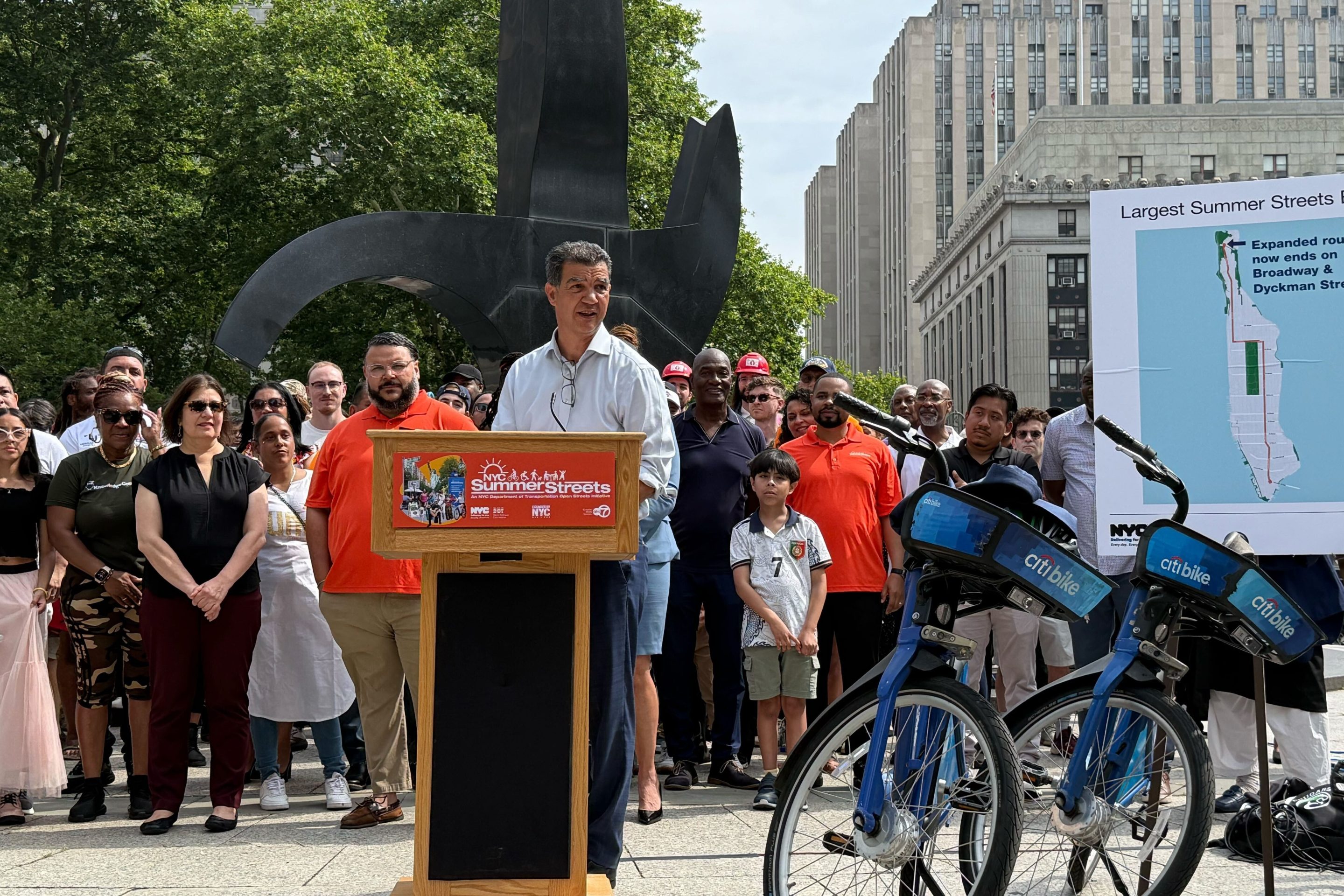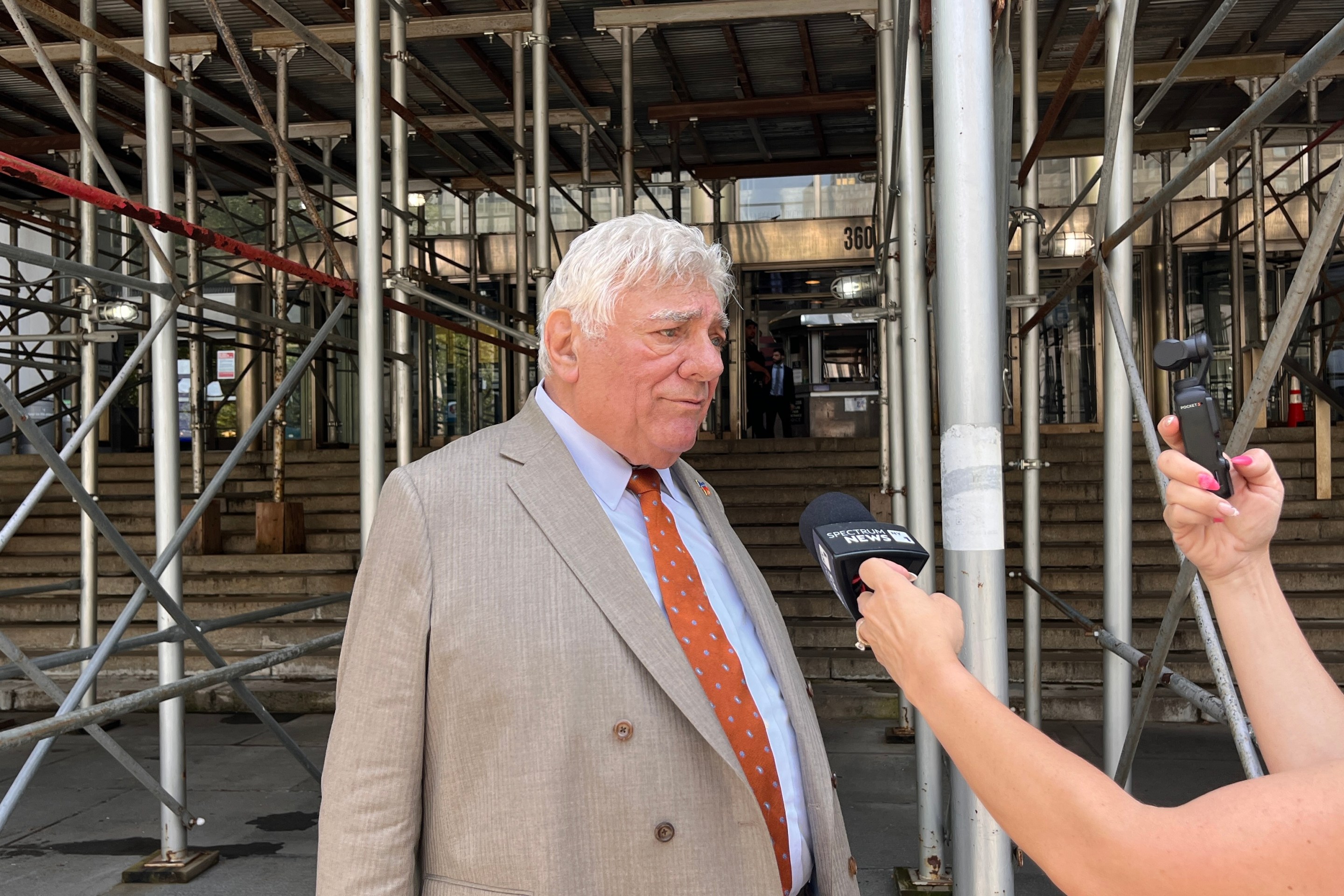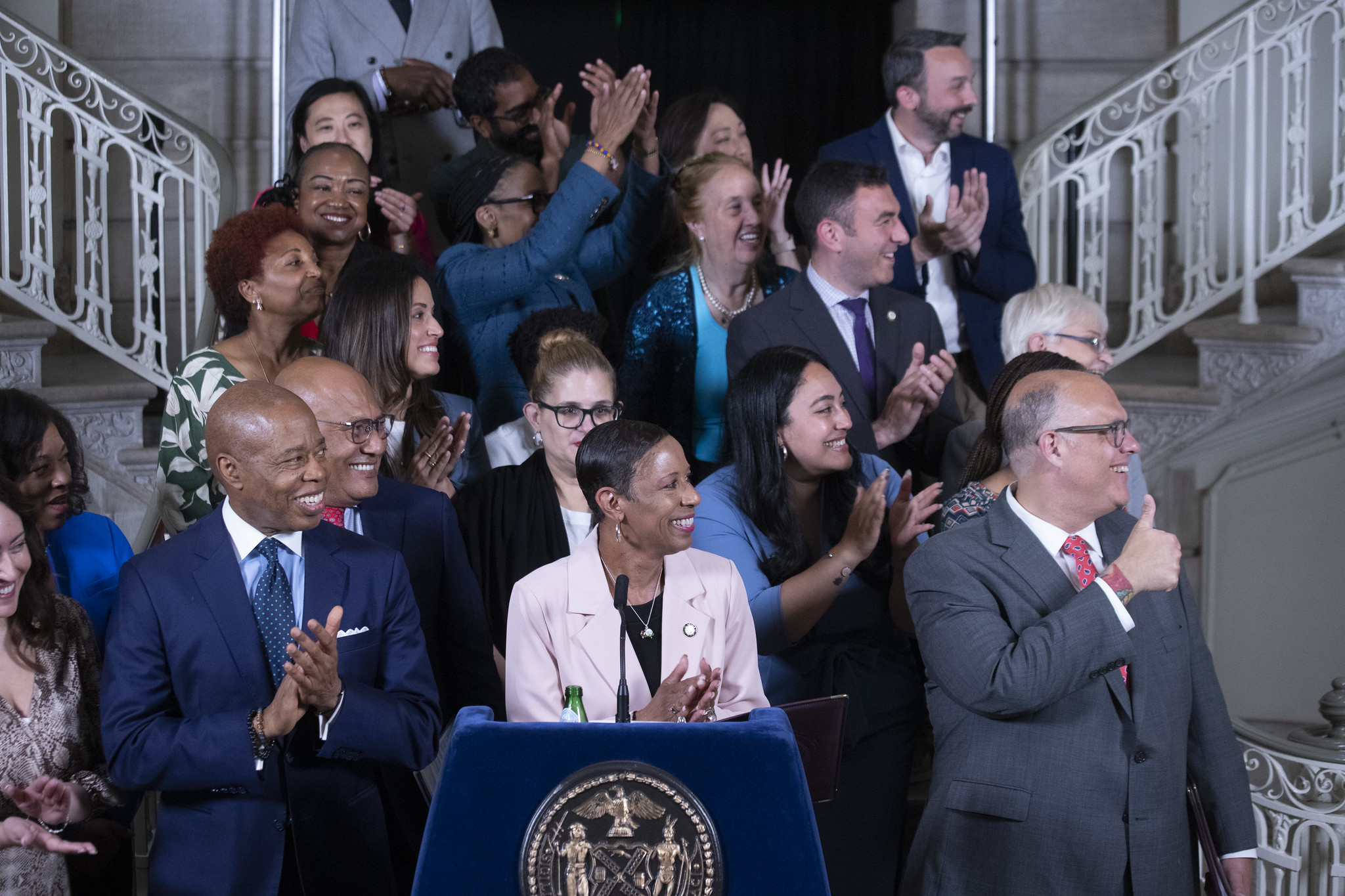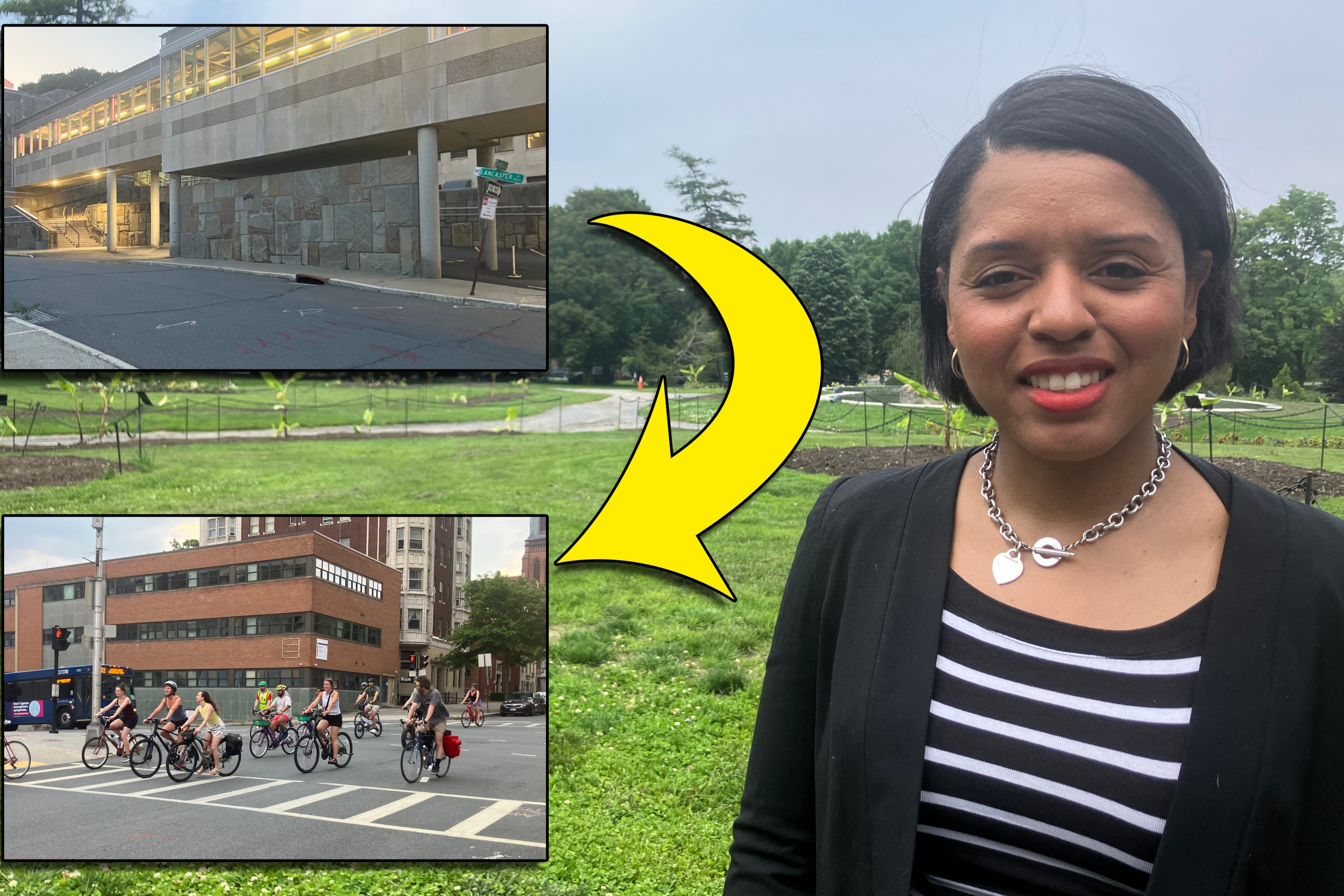Boston Mayor Marty Walsh wants City Hall to staff up to improve bus service, increase cycling, and reduce traffic fatalities. It could be a breakthrough for a city where advocates have ramped up the pressure on the mayor to follow through on his transportation promises with real policy change.
Walsh’s upcoming budget will direct $5 million to hire 20 employees to better manage bus priority treatments, parking, sidewalks, and traffic signals, he announced earlier this week. To fund the positions, the city will increase parking violation fines from the $30-45 range to the $55-75 range, which is more in line with peer cities.
The staffers will be charged with carrying out the mayor’s Go Boston 2030 plan, which aims to increase transit ridership by a third, quadruple biking rates, and cut solo driving in half.
Five of the new city employees will be assigned to speed up bus service by designing and managing bus lanes and implementing transit signals that give buses fewer red lights.
The bus lanes are sorely needed and could make a big difference for riders. A recent report by Boston’s LivableStreets Alliance identified seven miles of streets where traffic congestion slows down service for 92,000 bus riders — about a fifth of all MBTA ridership.
Earlier this year, Boston tested out a dedicated bus lane on a busy stretch of Washington Street in Roslindale. Riders reported that travel times improved dramatically.
Under Walsh’s budget, Boston would join cities including New York, San Francisco, Seattle, Baltimore, and Providence that have city staff dedicated to improving bus service. Many of the ingredients that make bus service more useful — dedicated lanes, signal priority, comfortable bus stops, and safe walking and biking networks — fall under the city’s jurisdiction, not the transit agency’s.
The mayor also plans to hire two planners and two engineers to reduce traffic deaths and injuries under the city’s Vision Zero program, and he’s allocating $700,000 to complete missing links in the bike network. His announcement promises to add protected bike lanes, neighborhood slow-speed zones, and intersection redesigns over the next four years.
The LivableStreets Alliance and other advocates had pressed Walsh to start making good on his traffic safety promises. Until now, there wasn’t much evidence that the mayor would follow through, but LivableStreets’ Executive Director Stacy Thompson thinks Walsh’s budget is a promising sign.
“This is exactly the kind of investment needed to meet the ambition of the Go Boston 2030 action plan,” Thompson said in a statement.






